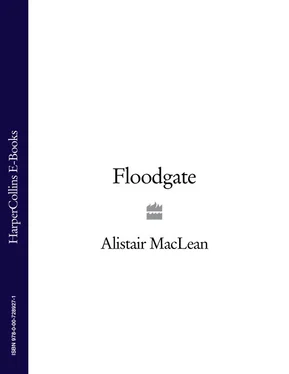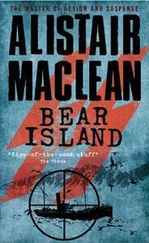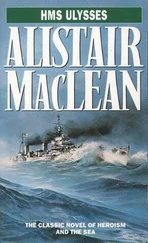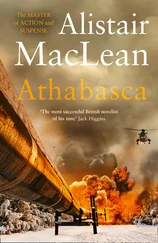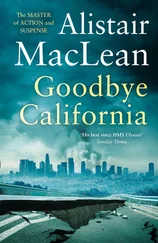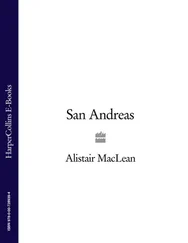Alistair MacLean - Floodgate
Здесь есть возможность читать онлайн «Alistair MacLean - Floodgate» — ознакомительный отрывок электронной книги совершенно бесплатно, а после прочтения отрывка купить полную версию. В некоторых случаях можно слушать аудио, скачать через торрент в формате fb2 и присутствует краткое содержание. Жанр: unrecognised, на английском языке. Описание произведения, (предисловие) а так же отзывы посетителей доступны на портале библиотеки ЛибКат.
- Название:Floodgate
- Автор:
- Жанр:
- Год:неизвестен
- ISBN:нет данных
- Рейтинг книги:5 / 5. Голосов: 1
-
Избранное:Добавить в избранное
- Отзывы:
-
Ваша оценка:
- 100
- 1
- 2
- 3
- 4
- 5
Floodgate: краткое содержание, описание и аннотация
Предлагаем к чтению аннотацию, описание, краткое содержание или предисловие (зависит от того, что написал сам автор книги «Floodgate»). Если вы не нашли необходимую информацию о книге — напишите в комментариях, мы постараемся отыскать её.
Floodgate — читать онлайн ознакомительный отрывок
Ниже представлен текст книги, разбитый по страницам. Система сохранения места последней прочитанной страницы, позволяет с удобством читать онлайн бесплатно книгу «Floodgate», без необходимости каждый раз заново искать на чём Вы остановились. Поставьте закладку, и сможете в любой момент перейти на страницу, на которой закончили чтение.
Интервал:
Закладка:
De Graaf looked. Had he been the airport manager, he reflected, it would hardly have been a sight to gladden his heart. Schiphol airport had just disappeared, its place taken by a wave-rippled lake that stretched almost as far as the eyes could see. The source of the flooding was all too easy to locate: close to the big fuel storage tanks just outwith the perimeter of the airport itself, a wide breach had appeared in the dyke of the canal to the south: the debris, stones and mud that were scattered along the top of the dyke on either side of the breach left no doubt that the rupture of the containing dyke had not been of a natural or spontaneous origin.
The effect of the onrush of waters had been devastating. The airport buildings themselves, though flooded in the ground floors and basements, remained intact. The damage done to the sensitive electric and electronic machinery was very considerable and would almost certainly cost millions of guilders to replace but the structural integrity of the buildings was unaffected: Schiphol airport is very solidly built and securely anchored to its foundations.
Aircraft, unfortunately, when not operating in their natural element, are very delicate artifacts and, of course, have no means at all of anchoring themselves. A momentary screwing of de Graaf’s eyes showed that this was all too painfully evident. Small planes had drifted away to the north. Some were still floating aimlessly around. Some were known to be sunk and out of sight, and two had their tail-planes sticking up above the water—those would have been single-engined planes, carried down head-first by the weight of the engines in their noses. Some two-engined passenger jets, 737s and DC9s, and three-engined planes, Trident 3s and 727s had also moved and were scattered randomly over a large area of the airfield, their noses pointing in every which direction. Two were tipped on their sides and two others were partially submerged, with only parts of their upper bodies showing: their undercarriages had collapsed. The big planes, the 747s, the Tri-Stars, the DC10s, were still in situ, held in position by their sheer massive weight—these planes, fuelled, can weigh between three and four hundred tons. Two, however, had fallen over to one side, presumably because the undercarriages distant from the onrush of water had collapsed. One did not have to be an aeronautical engineer to realize that both planes were write-offs. Both port wings were angled upwards at an angle of about twenty degrees and only the roots of the starboard wings were visible, a position that could only have been accounted for by the fact that both wings must have broken upwards somewhere along their lengths.
Several hundred yards along a main runway an undercarriage projecting above the water showed where a Fokker Friendship, accelerating for take-off, had tried to escape the floodwaters and failed. It was possible that the pilot had not seen the approach of the flood waters, possible but unlikely: it was more likely that he had seen them, reckoned that he had nothing to lose either way, continued accelerating but failed to gain liftoff speed before being caught. There was no question of his plane having been engulfed: in those initial stages, according to observers, there had been only an inch or two of water fanning out over the airfield but that had been enough to make the Fokker aquaplane with disastrous results.
Airport cars and trucks had simply drowned under the water. The only remaining signs of any wheeled vehicles were the projecting three or four steps of aircraft boarding ramps and the top of a tanker: even the ends of two crocodile disembarkation tubes were dipped forlornly into the murky waters.
De Graaf sighed, shook his head and turned to de Jong who was gazing almost sightlessly over his devastated airfield as if still quite unable to comprehend the enormity of what had happened.
‘You have a point, Jon. You and I are sane, or at least I think the world at large would think so, and it is not possible that we could have been responsible for such appalling destruction. But that doesn’t mean that the criminal responsible for this wanton destruction is insane: we will doubtless find, either through our own efforts or because he chooses to inform us, that there was a very compelling reason for what he did. I shouldn’t have used the word “wanton” there, you shouldn’t have used words like “mindless” and “pointless”. This is no random, arbitrary, spur-of-the-moment act of an escaped mental patient: this is a deliberately calculated act designed to produce a deliberately calculated effect.’
Reluctantly, as if by a giant effort of will, de Jong looked away from the flooded airfield. ‘Effect? The only effect it has on me is one of sheer outrage. What other effects could there be? Do you have any suggestions?’
‘None. I’ve had no time to think about it. Don’t forget I’ve only just come to this. Sure, sure, we knew yesterday that this was promised, but like everyone else, I thought the idea was so preposterous as to be not worth considering. But I have two other suggestions. I suggest that we’ll achieve nothing by staring out over Lake Schiphol: and I suggest we’re not going to help anyone or anything by hanging around here and getting pneumonia.’ De Jong’s briefly pained expression showed what he thought of the term ‘Lake Schiphol’ but he made no comment.
The staff canteen was an improvement on the roof-top inasmuch as there was no wind but it wasn’t all that much warmer. All electric heating had inevitably been short-circuited and the butane heaters that had been brought in had as yet had a minimal effect on the chilled atmosphere. An abundance of hot coffee helped: something rather more sustaining, de Graaf reflected, would have been in order, but for those with a taste for schnapps or jonge jenever the presence of the airport manager had a markedly inhibiting effect. As became his ascetic appearance, de Jong was a lifelong teetotaller, a difficult thing to be in Holland. He never made a point of this, he had never even been heard to mention this, but, somehow, people just didn’t drink anything stronger than tea or coffee when de Jong was around.
De Graaf said: ‘Let’s summarize briefly what we know. It has to be brief because we know virtually damn all. Three identical messages were received yesterday afternoon, one to a newspaper, one to the airport authorities—in effect, Mr de Jong—and one to the Rijkswaterstaat of the Ministry of Transport and Public Works.’ He paused briefly and looked across at a burly, dark-bearded man who was placidly polluting the atmosphere with the smoke from what appeared to be a very ancient pipe. ‘Ah! Of course. Mr van der Kuur. The Rijkswaterstaat Deputy Projects Engineer. How long to clear up this mess?’
Van der Kuur removed his pipe. ‘We have already started. We seal off the breach in the canal with metal sheeting—a temporary measure only, of course, but sufficient. After that—well, we do have the best and biggest pumps in the world. A routine job.’
‘How long?’
‘Thirty-six hours. At the outside.’ There was something very reassuring about der Kuur’s calm and matter-of-fact approach. ‘Provided of course that we get a degree of cooperation from the tugboat men, barge men and private owners whose boats are at the moment resting on the mud at the bottom of the canal. The boats that settled on an even keel are no problem: those which have fallen over on their sides could well fill up. I suppose self-interest will ensure cooperation.’
De Graaf said: ‘Any loss of life in the canal? Or anybody hurt?’
‘One of my inspectors reports a considerable degree of high blood pressure among the skippers and crews of the stranded craft. That apart, no one was harmed.’
‘Thank you. The messages came from a man or a group signing themselves FFF—it was not explained what those initials were meant to stand for. The intention, it was said, was to demonstrate that they could flood any part of our country whenever and wherever they wished by blowing up a strategically placed dyke and that accordingly they intended to give a small scale demonstration that would endanger no one and cause as little inconvenience as possible.’
Читать дальшеИнтервал:
Закладка:
Похожие книги на «Floodgate»
Представляем Вашему вниманию похожие книги на «Floodgate» списком для выбора. Мы отобрали схожую по названию и смыслу литературу в надежде предоставить читателям больше вариантов отыскать новые, интересные, ещё непрочитанные произведения.
Обсуждение, отзывы о книге «Floodgate» и просто собственные мнения читателей. Оставьте ваши комментарии, напишите, что Вы думаете о произведении, его смысле или главных героях. Укажите что конкретно понравилось, а что нет, и почему Вы так считаете.
